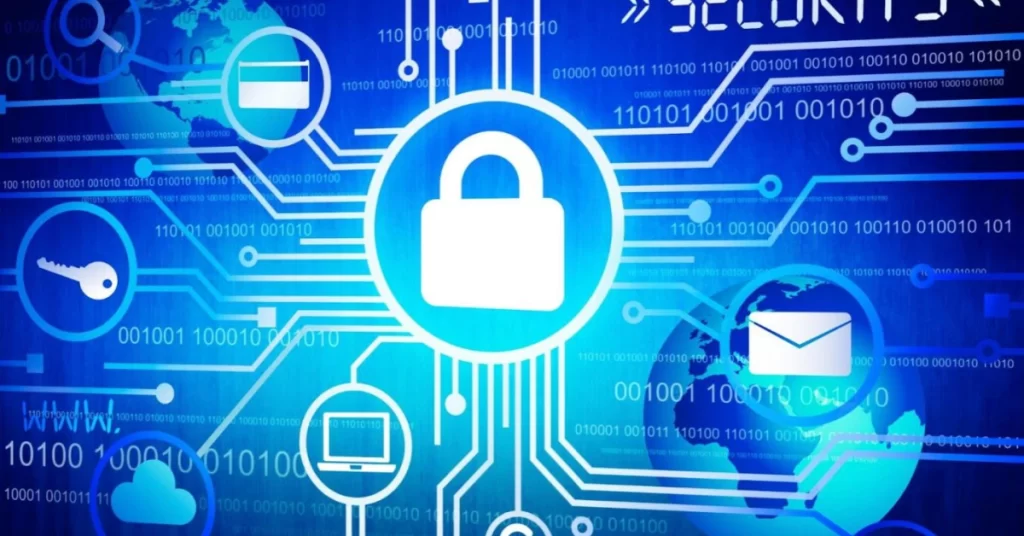
The post The Importance of Digital Identity and Privacy in Web3: Safeguarding Online Presence in the Decentralized World appeared first on Coinpedia Fintech News
A new age known as Web3 has emerged and is defined by decentralized technology, user empowerment, and a greater emphasis on digital identity and privacy. The necessity to safeguard our online presence has never been more essential given how closely our lives are becoming entwined with the digital world. Through practical, real-world examples, this article will examine the significance of digital identity and privacy in Web3.
The Shift to Web3: A Decentralized Landscape
Picture ourselves residing in a gated neighbourhood where our neighbours all possess the keys to our home. Even while it may sound like a nightmare, the centralized internet (Web2) that we currently use is not all that different from this. Contrarily, Web3 aims to create a digital environment where people have control over their data, similar to having a secure lock on our front door.
In the Web3 realm, users keep control of their digital identities, giving them more power over their personal data and enabling them to safely communicate with a range of online services. Modern technologies like decentralized storage, decentralized finance (DeFi), and decentralized applications(dApps) have emerged as a result of this move towards decentralization, providing distinct advantages including improved security, transparency, and privacy.
The Significance of Digital Identity and Privacy in Web3
As we enter the era of Web3, the importance of digital identity and privacy becomes increasingly crucial. Here’re some key aspects of digital identity and privacy and how they relate to our daily lives.
Security: Consider the number of online accounts we use daily, from social media to banking. Each of these accounts represents a potential vulnerability that could lead to identity theft or financial loss. Web3 technologies emphasize robust security measures, empowering users to protect their digital identities and safeguard their assets.
Control: Imagine renting out a room in our house and having to provide the tenant with our entire life history. This is similar to the current state of data sharing on the internet, where users often relinquish control over their personal information. Web3 grants users the ability to selectively share their data, ensuring they have a say in how their information is used.
Privacy: Envision a world where our every move is tracked, and our personal information is broadcast to anyone interested. This scenario is not far from the reality of digital surveillance in today’s online landscape. Web3 technologies prioritize privacy, enabling users to interact online without sacrificing their anonymity.
Exchange Security and Digital Identity
Centralized exchanges play a pivotal role in maintaining user privacy and protecting digital identities as the popularity of cryptocurrencies continues to rise. CoinEx, a leading cryptocurrency exchange, prides itself on its 0-accident track record and commitment to user security. With over 700 cryptocurrencies and 1,100+ trading pairs available, the platform’s robust security measures ensure that user information and funds are well-guarded. CoinEx adopts the Proof of Reserve mechanism with a Merkle tree, guaranteeing a 100% reserve ratio and solidifying its position as a reliable and secure exchange.
When considering the recent crises that have plagued other cryptocurrency exchanges, CoinEx’s dedication to security and privacy becomes all the more noteworthy. By prioritizing user protection and adopting robust technologies, CoinEx empowers individuals to trade cryptocurrencies with confidence, knowing that their digital identities and assets are in safe hands. This commitment to safeguarding user information and assets highlights the vital role that reliable exchanges play in the cryptocurrency ecosystem.
Everyday Applications of Digital Identity and Privacy in Web3
Web3 technologies have the potential to revolutionize various aspects of our daily lives by offering enhanced digital identity and privacy solutions. Here are 3 examples:
Online shopping: Consider a safe digital wallet that enables users to shop online without disclosing their credit card information. This can become a reality thanks to Web3 technologies, which also allow consumers to buy safely and safeguard their financial information.
Healthcare: Picture a system where our medical records are safely kept on a distributed network and we have complete control over who can access them. By giving patients more control over their health data, enhancing privacy, and lowering the chance of data breaches, Web3 can help patients feel more empowered.
Voting: Imagine using a voting system in which our vote is safely recorded on an open, incorruptible digital ledger. This is feasible thanks to Web3 technologies, which also secure the privacy of voters and guarantee the fairness of elections.
Conclusion
As we journey into the world of Web3, the importance of digital identity and privacy cannot be overstated. We may better understand the importance of decentralized technologies and the function that secure exchanges play in protecting user information by comprehending these concepts’ significance and how they affect our day-to-day lives.
Overall, the transition to Web3 and its emphasis on digital identity and privacy is an important step toward empowering people to take control of their personal information and navigate the digital terrain with confidence and security. This will contribute to the development of a more private, secure, and user-centric internet in the future.

 2 years ago
173
2 years ago
173
![Here’s why Injective [INJ] will drop to the $10 demand zone next](https://ambcrypto.com/wp-content/uploads/2025/08/Injective-Featured.webp)













 English (US) ·
English (US) ·